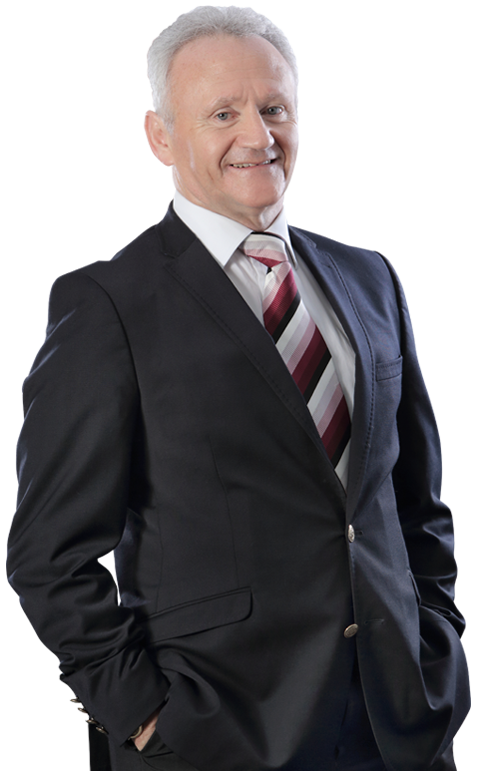
Chairman's report
"The group again performed well in the 2015 financial year and continued to generate highly competitive returns, with a sector-leading return on equity of 53.7%."
David Nurek, Independent non-executive chairman

Slowing economic growth prospects
Low economic growth continues to hamper the prospect of a recovery in South Africa’s fortunes in the short to medium term, with widespread power outages, a depreciating currency, falling commodity prices, low business and consumer confidence all being features of the domestic economy in the past year.
The country’s poor growth prospects are reflected in the forecast growth in gross domestic product (GDP) which has recently been revised downwards to only 1.5% for 2015, 1.7% for 2016 and 2.6% in 2017. As recently as 2011 the country’s GDP growth rate was 3.5%.
Capacity constraints at the state power utility, Eskom, resulted in extensive power outages which had a severe impact on the national economy. This was particularly disruptive and costly for the retail sector as the electricity load shedding resulted in regular store closures and restricted trading hours. While the frequency and duration of power outages did lessen in the second half of the financial year, this remains a major risk to economic growth in the country.
Consumer sentiment remains negative. In the third quarter of 2015 the Consumer Confidence Index was at levels last recorded during the global and local recession in 2008/9, which is not supportive of growth in consumer spending in the year ahead.
Interest rates are in an upward cycle and the South African Reserve Bank (SARB) increased its benchmark interest rate, the repurchase (repo) rate, by 25 basis points to 6% in July 2015. Interest rates are expected to increase in the new financial year although the SARB needs to balance the impact of the Rand’s depreciation on inflation without further limiting economic growth.
South Africa’s appeal as an investment destination has also suffered from the negative impacts on the economy, with foreign investment and interest in the country declining over the past year.
The Minister of Finance’s medium-term budget policy statement in October 2015 also confirmed that lean times are likely to continue as the country faces growing economic headwinds in the context of a muted outlook for global growth.
Strong financial performance
Against the background of low economic growth and constrained consumer spending that has prevailed in recent years, the group has produced consistently good financial results, highlighting the defensive nature of the business and the resilience of the markets in which we trade.
It is pleasing to report that the group again performed well in the 2015 financial year and continued to generate highly competitive returns, with a sector-leading return on equity of 53.7%.
The group’s diluted headline earnings per share increased by 14% to 383.9 cents per share, having grown at a five-year annual compound rate of 12.7%.
The total dividend was increased by 23.7% to 235.0 cents per share, based on a reduced dividend cover ratio of 1.7 times headline earnings per share. Dividends have grown at an annual compound rate of 17.2% over the past five years.
The group remains highly cash generative and is committed to investing for longer-term growth and returning surplus capital to shareholders. As part of the group’s capital management strategy the board regularly reviews the dividend cover. The current level equates to a dividend payout ratio of 59% compared to 50% in 2011.
Over the past five years the group has generated over R5.2 billion in cash, invested R1.5 billion in organic growth and returned R3.3 billion to shareholders in dividends and share buy-backs.
The group’s trading and financial performance is covered in the chief executive’s report and in the chief financial officer’s report.
Attractive investment case
The group’s retail focused health, beauty and wellness strategy is aimed at driving organic growth and generating long-term shareholder value. The directors believe Clicks Group offers a compelling investment case for investors seeking non-cyclical equity exposure to the retail and healthcare sectors in South Africa.
Indeed Clicks Group has proven to be attractive to international investors. At year-end 62% of the group’s shares were held by offshore fund managers, including 43% in the United States where investors have a thorough understanding and appreciation of the corporate retail pharmacy model.
The group has a resilient business model, with over 80% of turnover in defensive merchandise categories. All businesses in the group have market-leading positions, with Clicks growing its share of the core health and beauty markets. UPD has market-leading positions in both the pharmaceutical wholesale and distribution markets.
Clicks is the country’s leading health and beauty retailer and has strong organic growth prospects. This includes extending the store footprint in South Africa from the current 460 stores to 600 in the longer term, incorporating a pharmacy into every Clicks store, driving the growth of higher margin private label and exclusive brand sales and expanding the 5 million member ClubCard loyalty programme which accounts for 75% of the chain’s sales.
The investment case is supported by a track record of sustained financial and operational performance, a proven capital management strategy which enhances returns to shareholders and the group’s ability to generate strong free cash flows.
Best practice governance
Governance and reporting standards of the South African corporate sector are highly rated internationally. This was again confirmed in the World Economic Forum’s Global Competitiveness Report 2014 – 2015 which ranked South Africa first out of 144 economies for the strength of auditing and reporting standards, and third for the efficacy of corporate boards.
This authoritative endorsement of the country’s governance practices should provide reassurance to international fund managers investing in local companies like ourselves.
Clicks Group has a strong, stable, diverse and independent board with extensive collective knowledge of our business. The diversity of the directors in terms of gender, race and their professional backgrounds encourages constructive debate and ensures that the board considers the needs of a wide range of stakeholder interests. All six of the non-executive directors are classified as independent.
Keith Warburton, the chief operating officer of Clicks, resigned as an executive director in January this year and we thank him for his service to the board.
The group continues to provide best practice reporting and disclosure to shareholders. The 2014 Integrated Report was again rated in the “Excellent” category in the authoritative EY Excellence in Integrated Reporting Awards.
Executive remuneration is closely aligned with shareholder interests and value creation. The group’s remuneration policy is proposed to shareholders annually for a non-binding advisory vote and was approved by 97.6% of the votes at the AGM in January 2015.
The group has again in all material respects applied the recommendations of the King lll governance code in the past year. We look forward to the expected release of the King IV Code of Corporate Principles in 2016, anticipated to be effective from 2017, which should ensure that South Africa remains at the forefront of governance developments globally.
Clicks Group was the top ranked retail company in the Most Empowered Companies ratings for 2015, based on research by empowerment rating agency, Empowerdex. The group maintained its level 3 BBBEE rating on the Department of Trade and Industry generic scorecard in the 2015 financial year and achieved an improved score of 84.23 points compared to 80.54 in the previous year.
Acknowledgements
Thank you to David Kneale and his executive team for their leadership of the business in delivering a strong all-round performance. My fellow non-executive directors provide valuable insight and guidance and I thank them for their continued support over the past year.
I also wish to thank our 8 600 employees for their commitment to meeting the needs of our customers and for ensuring our businesses remain market leaders.
Thank you to our external stakeholders, including our customers, shareholders and investment analysts, suppliers, industry regulators and business partners for your continued support and contribution to our success.


David Nurek
Independent non-executive chairman




